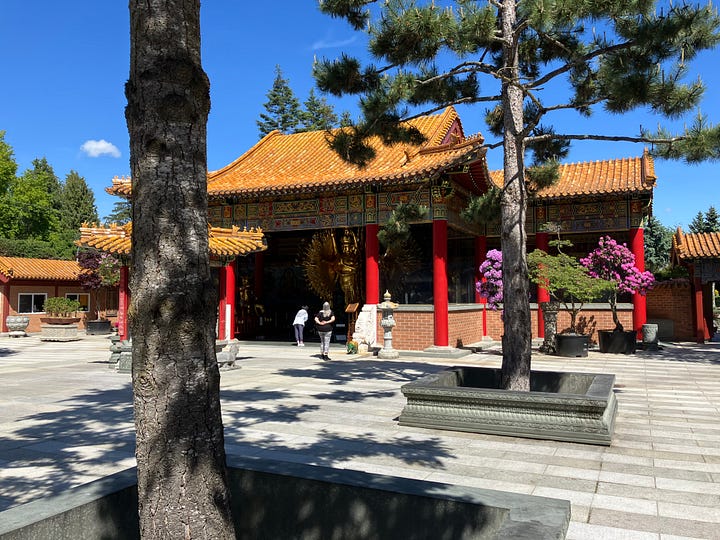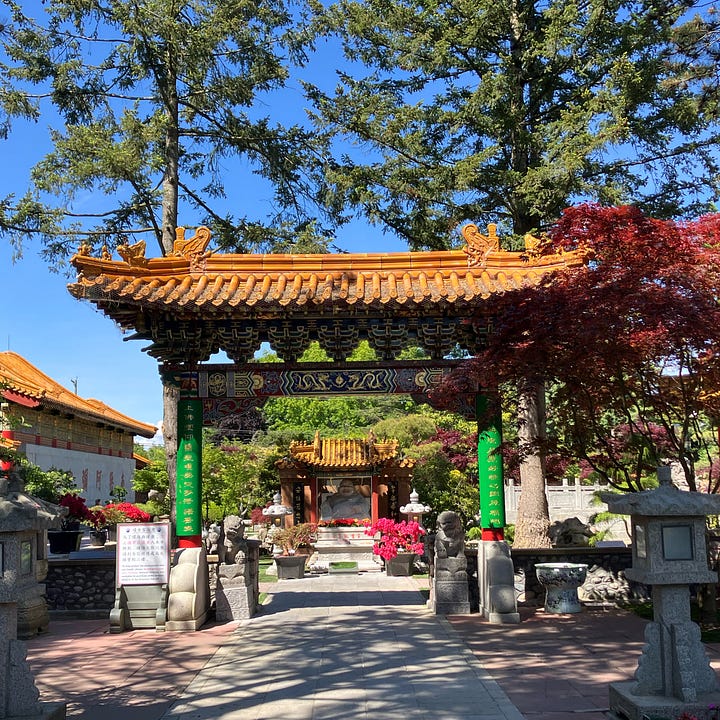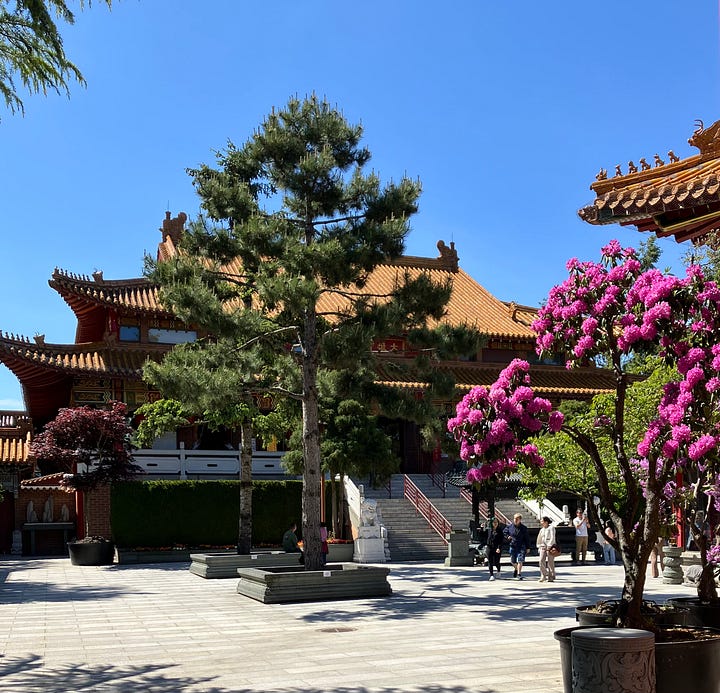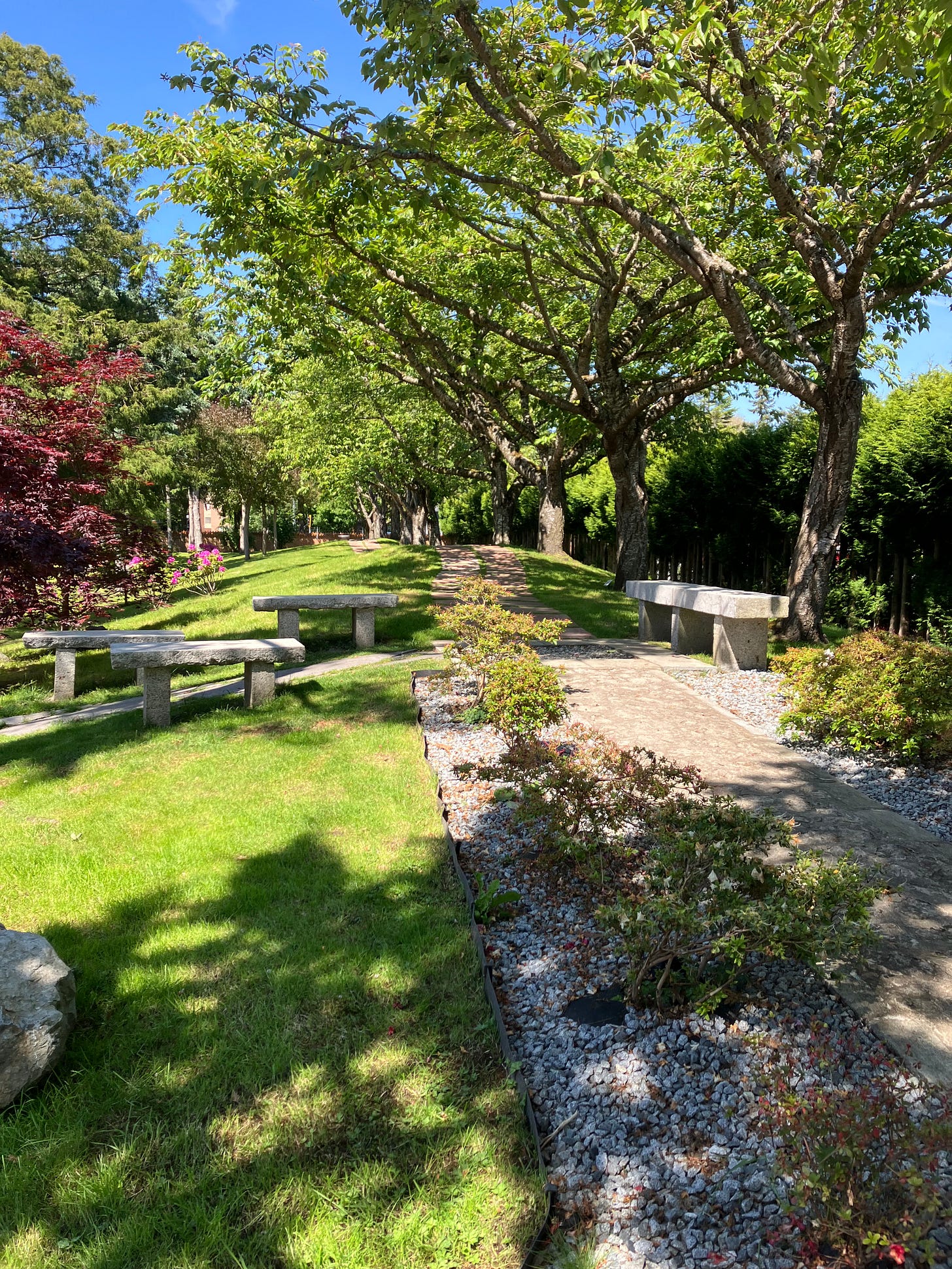“Feelings are just visitors; let them go”
A visit to a Buddhist temple reveals timeless truths and offers support on life's journey

The other day I visited a Buddhist temple for the first time. Very succinctly and directly, here are some of the things I learned:
Psychological distress is part of human existence. Everyone suffers. Our attachment to ideas, desires, and material objects leads to inner pain. We are always trying to fix things. We think that if we were only a little smarter, richer or prettier, then life would be better. Buddhists say this is not the way. The way to ease suffering is to let go, to accept that everything is transient.
The path is difficult because we are so conditioned by our traditional way of thinking. One way to focus the mind is to live in the present and pay attention to every moment. This is one aspect of meditative practice.
Detaching from negative thoughts is also important. Be compassionate with yourself. Love your being. Reconnect with your essence gently and you will reconnect with the hidden values that are important to you.




As I walked around various buildings, a sign on a video screen caught my attention. It quoted the Buddha: “Happiness does not depend on what you have or who you are: it solely relies on what you think.”
Another sign painted in red paint on a brick said, “Always maintain a joyous mind.”
Accepting that everything is transitory, that we live in a universe that is constantly morphing, that there is so much we shouldn’t try to control, can be a hard concept to embrace. This difficulty arises especially when we grapple with emotions, particularly the negative ones that sometimes embed themselves in the core of our being and affect so much of what we do and think.
A sign that really hit home for me was this one: “Feelings are just visitors; let them go.”
I reflected on that all the way home.
Wisdom from an ancient poet
Recently, a doctor in a cognitive behavioural class that I attended chose to address this transitory aspect of emotions by reading a poem. The composition was from the celebrated 13th-century poet and Sufi mystic we in the west call Rumi (Jalal al-Din Muhammad Rumi). It’s a beautiful metaphor for our human tendency of wrestling with emotions. In this reflection called The Guest House, the poet offers an alternative insight:
This being human is a guest house.
Every morning a new arrival.A joy, a depression, a meanness,
some momentary awareness comes
as an unexpected visitor.Welcome and entertain them all!
Even if they’re a crowd of sorrows,
who violently sweep your house
empty of its furniture,
still, treat each guest honorably.
He may be clearing you out
for some new delight.The dark thought, the shame, the malice,
meet them at the door laughing,
and invite them in.Be grateful for whoever comes,
because each has been sent
as a guide from beyond.
From Rumi: Selected Poems, translated by Coleman Barks with John Moynce, A. J. Arberry, Reynold Nicholson (Penguin Books, 2004)
At this point I ask myself: am I fighting emotions, keeping my life small, repeating the same responses over and over, wandering without a sense of direction? Or am I living in a purposeful way aligned with my values?
I am reminded that when dealing with feelings, I have the ability to choose my response; whether it be heartache or joy, aggravation, elation or bitterness: I don’t have to be on autopilot. I can be more aware. I can seek knowledge and use skills to grow.
In understanding how anxiety and worry make us feel uneasy, a number of healthcare professionals and philosophers offer this suggestion: as events and feelings act on you, try to stay curious. Look at these forces with a detached perspective; just observe them as you might look at waves in the ocean. Honour them as guests in your home, if you will, but don’t let them consume you, for you are always the watcher.
My visit to the temple also reminded me of something else. Several people I’ve known over the years have lost relatives or partners to illness. At least two of my friends say that in those last weeks of life their relationships were heightened to a new level of richness. In palliative care the essence of their loved one emerged clearly. Freed of the body, there can be honesty, intimacy, forgiveness, purity, acceptance and peace.
If these things are true, then why shouldn’t I seek that path even now, in the fullness of life? Buddhism seems to offer one way.
~~~
Freehand
In closing, here are a couple of my quick sketches from this week.

Thanks for reading this letter.
Until next time,
-Renato Zane






Excellent article and advice!
I'm currently listening to an audiobook that describes how our emotions rule the rational part of our minds. (The Laws of Human Nature by Robert Greene)
He teaches how to detach from emotions, master self-control, and develop empathy. It's unfortunate that more people aren't enlightened enough to study Buddhism, self-reflection, and mindfulness. What a wonderfully different world it could be!
Bellissimo, Renato. Ogni ulteriore parola sarebbe superflua. E la citazione da Rumi è un'ulteriore, profonda boccata di aria fresca e rigenerante.
(Leggo un commento di Arianna Dagnino e mi ricordo il mio prof di matematica del liceo che si chiamava Dagnino!)